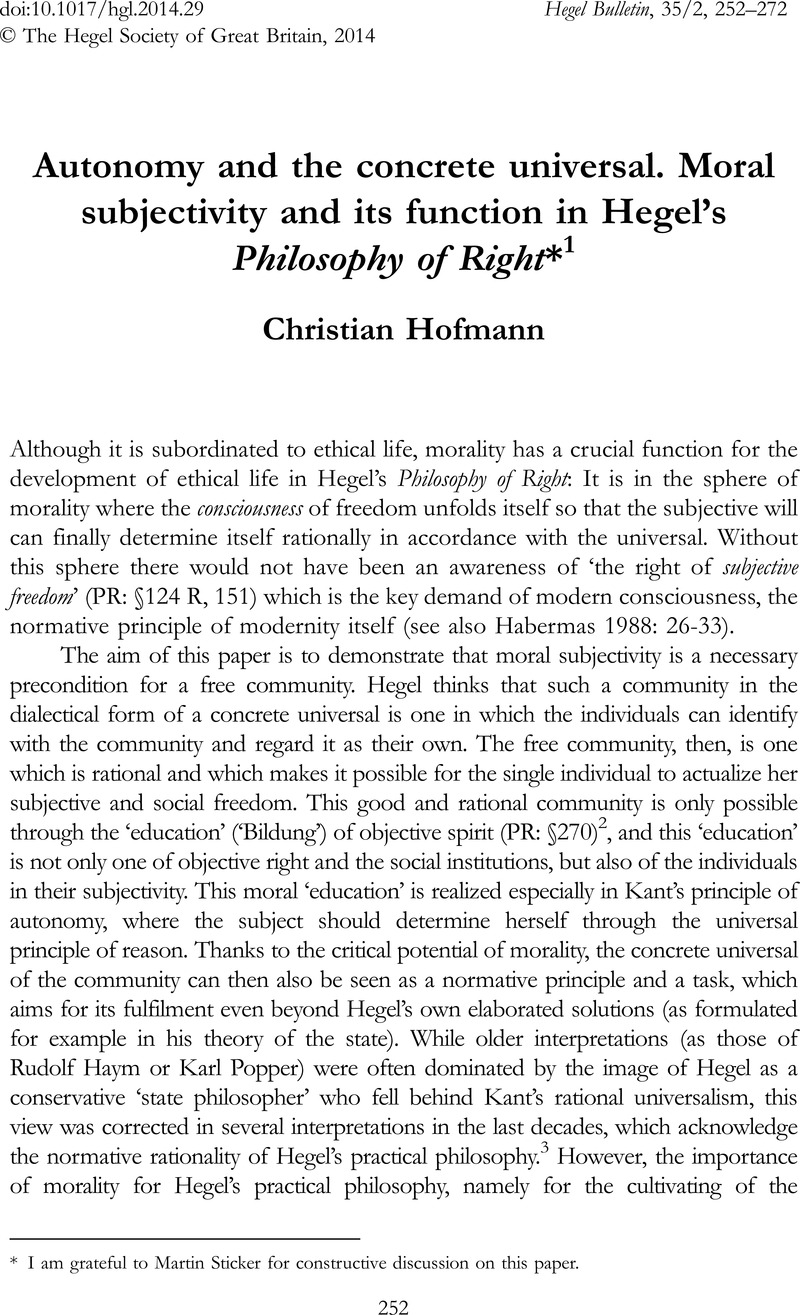No CrossRef data available.
Article contents
Autonomy and the concrete universal. Moral subjectivity and its function in Hegel’s Philosophy of Right*1
Published online by Cambridge University Press: 30 July 2014
Abstract

- Type
- Articles
- Information
- Copyright
- © The Hegel Society of Great Britain 2014
Footnotes
I am grateful to Martin Sticker for constructive discussion on this paper.
Hegel’s Elements of the Philosophy of Right are cited with the abbreviation ‘PR’ and paragraph numbers (page numbers are added only if the paragraph spans more than one page); for ‘remarks’ to the paragraphs I add ‘R’, and for ‘additions’ (the ‘Zusätze’ which were formulated by Eduard Gans with recourse to the lecture transcripts by H.G. Hotho and K.G. v. Griesheim) I add ‘Add’.
Hegel’s Philosophy of History is cited as ‘PH’. German versions of Hegel’s texts are cited according to the edition of the Gesammelte Werke with the abbreviation ‘GW’, volume number and page.
Kant’s Groundwork of the Metaphysics of Morals is cited as ‘GMM’ with additional reference to the passage in the German text (cited as ‘GMS’, following the edition of Kant’s gesammelte Schriften by the Royal Prussian Academy of Sciences).




